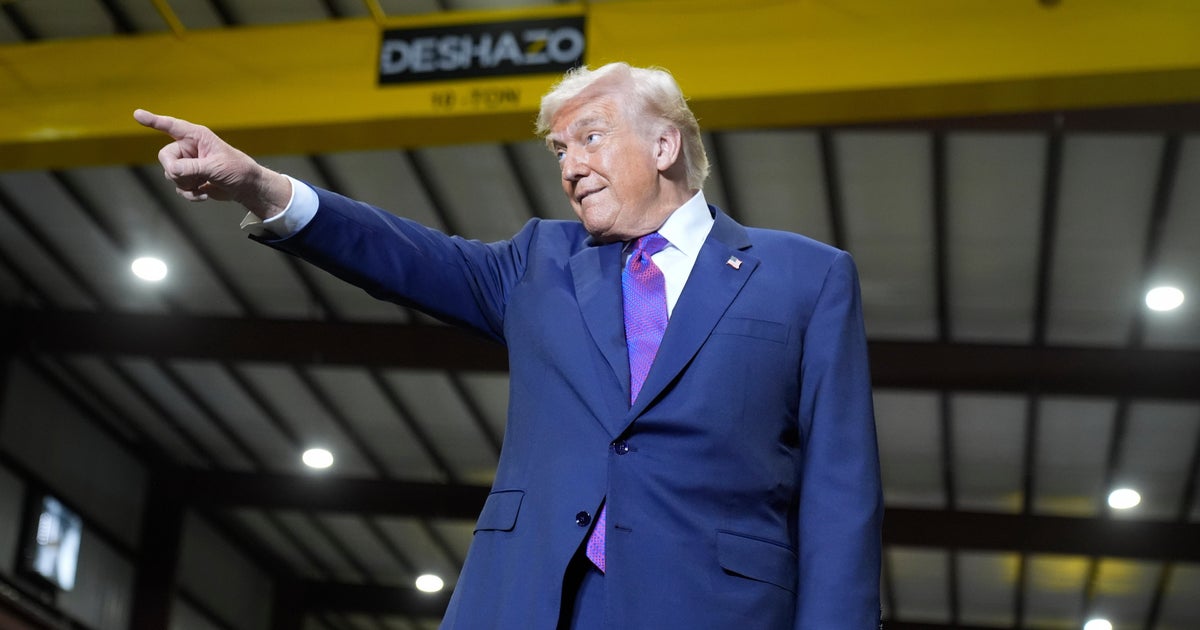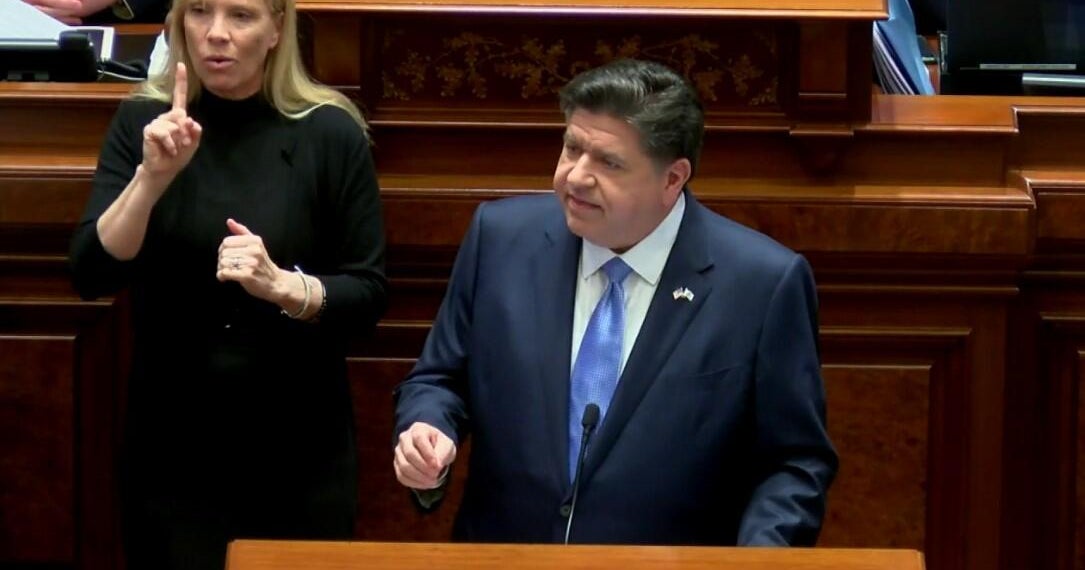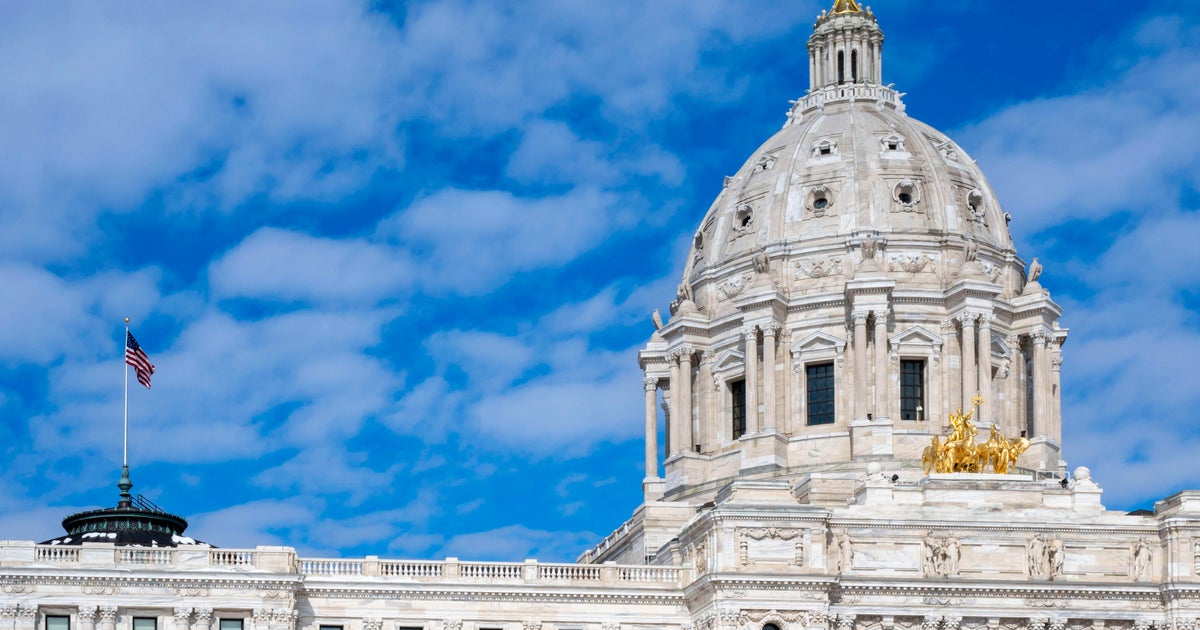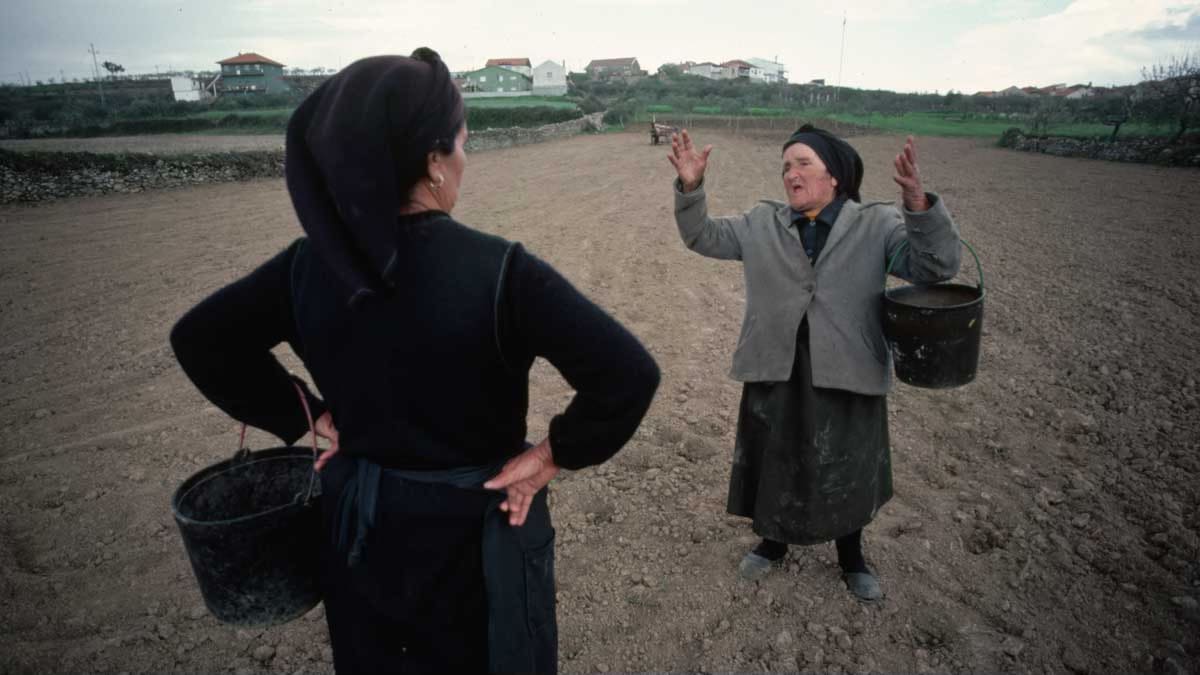Biden pushes infrastructure plan during Wisconsin visit
Washington — In western Wisconsin on Tuesday, President Biden made a pitch for the $1 trillion infrastructure deal he reached with a bipartisan group of senators, as the White House works to mitigate concerns on Capitol Hill about its passage alongside a sweeping spending bill encompassing Mr. Biden's larger infrastructure priorities.
The president toured the La Crosse Municipal Transit Utility in La Crosse, Wisconsin, before delivering a speech spotlighting the infrastructure framework, which the White House says will provide historic investments in roads, bridges, clean drinking water and rail. Speaking in a county that voted for him, but in a region of the state that largely voted for Mr. Trump, the president touted the bipartisan nature of the $1 trillion infrastructure deal. The president made the case that this bipartisan deal can be "living proof" to the broader world that democracy works.
"After months of careful negotiation, of listening, compromising, together and in good faith moving together, with ups and downs and some blips, a bipartisan group of senators got together, and they forged an agreement to move forward on the key priorities of my American Jobs Plan," said the president, facing a road work sign that said "American Jobs Plan."
Crumbling infrastructure has taken its toll on every American, Mr. Biden said Tuesday. He pointed out that some 600 bridges in Wisconsin badly need repair and claimed that Americans pay a hidden toll of about $1,000 per year in wasted time — stuck in traffic congestion because their roads are poorly maintained, and they're forced to take detours. His infrastructure plan would help fix these problems — and provide good jobs in the process, he said.
There's lead in the drinking water of 10 million American homes, Mr. Biden continued, and 400,000 schools and day care facilities are at risk of exposure to lead. But the package he's backing "contains the largest investment in clean drinking water and wastewater infrastructure in American history," the president said. Cities across the country face problems with industrial chemicals contaminating groundwater. It's an issue that's close to home in LaCrosse, he noted. "Here in LaCrosse County, just this spring, the state had to provide free bottled water to thousands of people on French Island because they were worried about those chemicals in the groundwater which were linked to cancer and other illnesses."
Mr. Biden also said the package will help strengthen the power grid, and revitalize natural infrastructure, like coastlines and levies. He mocked the idea held by some that climate change isn't real or a threat.
"It's 116 degrees in Portland, Oregon," Mr. Biden said. "One hundred and sixteen degrees! But don't worry, there's no global warming. It doesn't exist — it's a figment of our imagination. Seriously."
The president also said the deal will invest $66 billion in rail, and mark the largest investment in public transit in American history.
"Here in Wisconsin, we'll add new stops in Green Bay, Madison and Eau Claire," Mr. Biden said.
But the president insisted infrastructure needs go beyond just physical infrastructure in the $1 trillion deal.
"I'm going to be out there making the case for the American people until this job is done, until we bring this bipartisan deal home. Until our human infrastructure needs are also met," the president said.
Aboard Air Force One, White House press secretary Jen Psaki said the president visited Wisconsin, and not somewhere else, because, "Wisconsin is a place where the people of the state would hugely benefit from the components of the bipartisan infrastructure package."
That, Psaki said, entails the need for broadband access, and repairs to roads and bridges. The transit station the president visited has purchased two electric buses through a grant.
Mr. Biden announced Thursday the White House had reached a deal with the group of Republican and Democratic senators that focuses on traditional infrastructure. However, Democrats are also expected to move forward with a larger package using the budget reconciliation process that includes Mr. Biden's policies for child care, education and health care and would only need to pass along party lines.
While the president said last week he would like to see the two measures move through Congress "in tandem," a comment that rankled Republicans. Mr. Biden clarified Saturday he was not threatening to veto the bipartisan infrastructure deal and reiterated his support for the plan.
Still, Senate Minority Leader Mitch McConnell on Monday called on House Speaker Nancy Pelosi and Senate Minority Leader Chuck Schumer to follow Mr. Biden's lead and commit to decoupling the two bills.



